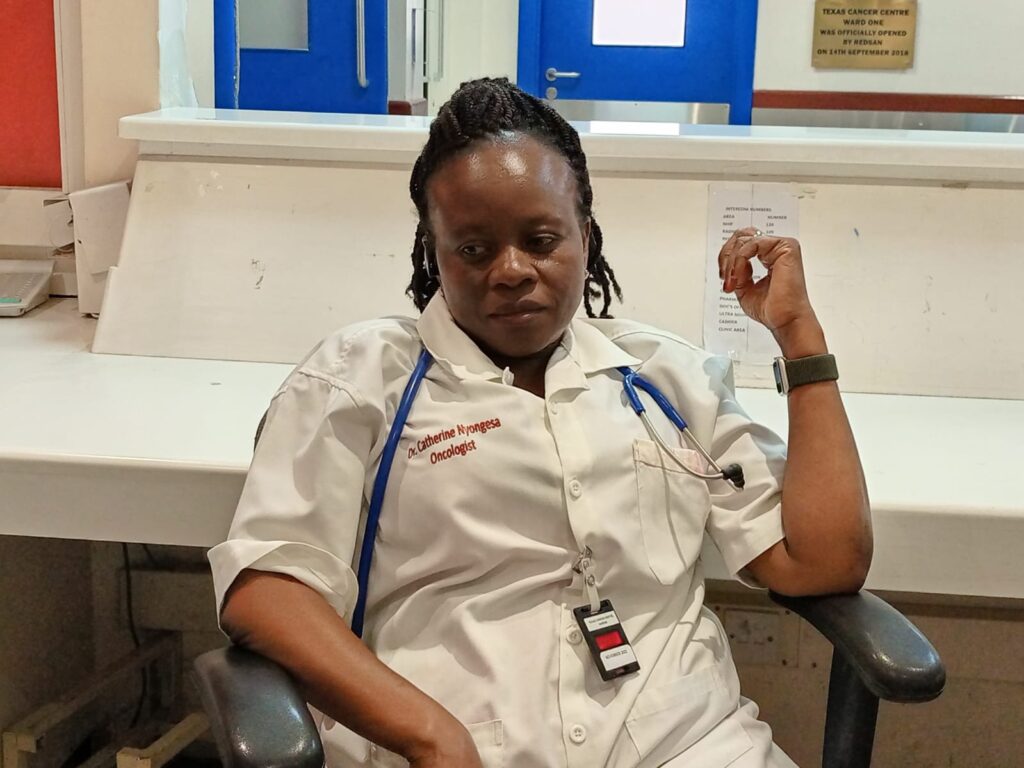Prevalence of Cervical Cancer worries Oncologists

Oncologists are raising a red flag over the rampant cases of cervical cancer cropping up. Dr. Catherine Nyongesa opines that this is exacerbated by various factors but firstly let’s understand what is Cervical Cancer?
Cervical cancer starts in the cells lining the cervix — the lower part of the uterus. The cervix connects the body of the uterus (the upper part where a fetus grows) to the vagina. Cancer starts when cells in the body begin to grow out of control.
What Causes it?
Infection by the human papillomavirus (HPV) is the most important risk factor for cervical cancer. HPV is a group of more than 150 related viruses. Some of them cause a type of growth called papillomas, which are more commonly known as warts.
Sexual history
Several factors related to your sexual history can increase the risk of cervical cancer. The risk is most likely affected by increasing the chances of exposure to HPV.
- Becoming sexually active at a young age (especially younger than 18 years old)
- Having many sexual partners
- Having one partner who is considered high risk (someone with HPV infection or who has many sexual partners)

Smoking
When someone smokes, they and those around them are exposed to many cancer-causing chemicals that affect organs other than the lungs. These harmful substances are absorbed through the lungs and carried in the bloodstream throughout the body.
Women who smoke are about twice as likely as those who don’t smoke to get cervical cancer. Tobacco by-products have been found in the cervical mucus of women who smoke. Researchers believe that these substances damage the DNA of cervix cells and may contribute to the development of cervical cancer. Smoking also makes the immune system less effective in fighting HPV infections.
Long-term use of oral contraceptives (birth control pills)
There is evidence that taking oral contraceptives (OCs) for a long time increases the risk of cancer of the cervix. Research suggests that the risk of cervical cancer goes up the longer a woman takes OCs, but the risk goes back down again after the OCs are stopped, and returns to normal many years after stopping.
Dr. Catherine Nyongesa operates the Texas Cancer Center along Mbagathi Road and is reachable on the Telephone number 0716279632.








